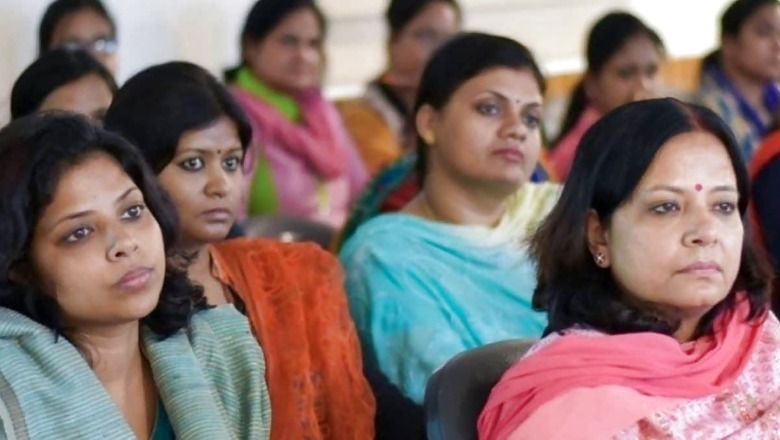
views
The Union Budget 2024-25 epitomises the government’s commitment to balancing high capital expenditures with robust welfare spending. This budget aims to empower every section of society, driving socio-economic growth and development across the nation. It reflects the government’s dedication to ensuring that all Indians, irrespective of religion, caste, gender, and age, make substantial progress in realising their life goals and aspirations. The government has placed a strong emphasis on inclusive growth, focusing on four major segments of society: garib (poor), mahilaayein (women), yuva (youth), and annadata (farmers).
Despite global economic uncertainties, including elevated asset prices, political instability in some countries, and shipping disruptions, India’s economic growth remains a beacon of stability. India’s inflation is low and stable, moving towards the 4 per cent target, with core inflation (non-food, non-fuel) currently at 3.1 per cent. Proactive government measures to ensure adequate market supplies of perishable goods have contributed significantly to this stability.
Social Welfare
The Budget 2024 marks a significant stride in promoting socio-economic development, with a strong focus on women’s empowerment and social justice. The Ministry of Women and Child Development’s budget has increased by 3 per cent, rising from Rs 25,449 crore in FY 2023-24 (RE) to Rs 26,092 crore in FY 2024-25 (BE). Meanwhile, the Department of Social Justice and Empowerment has received a substantial 32 per cent increase, growing from Rs 9,853 crore in FY 2023-24 (RE) to Rs 13,000 crore in FY 2024-25 (BE). The budget for the Department of Empowerment of Persons with Disabilities remains unchanged at Rs 1,225 crore.
Key Announcements for Women-led Development
The government has allocated over Rs 3 lakh crore for schemes benefiting women and girls, aiming to foster women-led development. This historic allocation emphasises the government’s commitment to empowering women and enhancing their role in the workforce. Key initiatives include the establishment of working women’s hostels in collaboration with industry partners and the creation of crèches to facilitate higher participation of women in the workforce. These hostels will provide safe and convenient living arrangements for working women, while crèches will support working mothers by offering reliable childcare services.
Furthermore, the government plans to partner with industries to organise women-specific skilling programmes and promote market access for women-led Self-Help Group (SHG) enterprises. These initiatives are designed to equip women with the skills needed to thrive in the workforce and support their entrepreneurial ventures, thereby driving economic growth and development.
Through its flagship scheme, Mission Shakti, the government aims to empower women. This initiative has two key components: Sambal and Samarthya. The budget for Sambal, which includes schemes for the safety and security of women, has increased from Rs 462 crore in FY 2023-24 (RE) to Rs 629 crore in FY 2024-25 (BE). This funding boost will enhance efforts to protect women from violence and ensure their safety in public and private spaces.
Samarthya, focused on the empowerment of women, has seen its allocation rise from Rs 1,864 crore in FY 2023-24 (RE) to Rs 2,517 crore in FY 2024-25 (BE). This increased funding will support various initiatives aimed at empowering women through education, skill development, and economic opportunities. By investing in these programmes, the government is fostering an environment where women can thrive and contribute to the nation’s growth.
A Comprehensive Approach to Social Justice
The most vulnerable sections of society, including senior citizens, transgender people, SCs and OBCs, and people with drug dependency, are the beneficiaries of the Social Justice Department. An increase in budget allocation will help in getting them constructively engaged in the nation’s growth. To achieve comprehensive social justice, the government will adopt a saturation approach, ensuring all eligible individuals are covered by programs focused on education and health. This approach aims to empower marginalised communities by improving their capabilities and providing them with the tools needed to succeed.
Commitment to All-Inclusive Development
The government is committed to comprehensive development, with a focus on strengthening welfare programmes for marginalised communities and improving social service infrastructure. The budget prioritises central sector schemes, such as scholarships for higher education under the Young Achievers Scheme for Scheduled Castes. These initiatives aim to provide educational opportunities and support to underprivileged communities, enabling them to break the cycle of poverty and achieve their full potential.
Conclusion
The Union Budget 2024-25 underscores the government’s dedication to women’s empowerment and social justice. With the highest allocation for women-centric schemes in over a decade, the budget reflects a clear vision of women-led development and economic empowerment. By increasing the participation of women in the workforce, providing skilling programmes, and enabling greater market access for women SHGs, the government is paving the way for a more inclusive and equitable society where women can fully participate in the economy and contribute to national progress.
In addition to empowering women, the budget’s focus on social justice initiatives ensures that marginalised communities receive the support they need to thrive. The increased funding for critical programmes and the adoption of a comprehensive approach to social justice demonstrate the government’s commitment to creating a more just and equitable society for all.
As India continues to progress towards becoming a developed nation, the 2024 Budget serves as a testament to the government’s unwavering commitment to fostering inclusive growth and empowering all citizens, regardless of their gender or socio-economic status.
Dr Veerendra Mishra, IPS, External Advisor to National Commission for Women, and Founder of SAMVEDNA. Views expressed in the above piece are personal and solely those of the author. They do not necessarily reflect News18’s views.




















Comments
0 comment